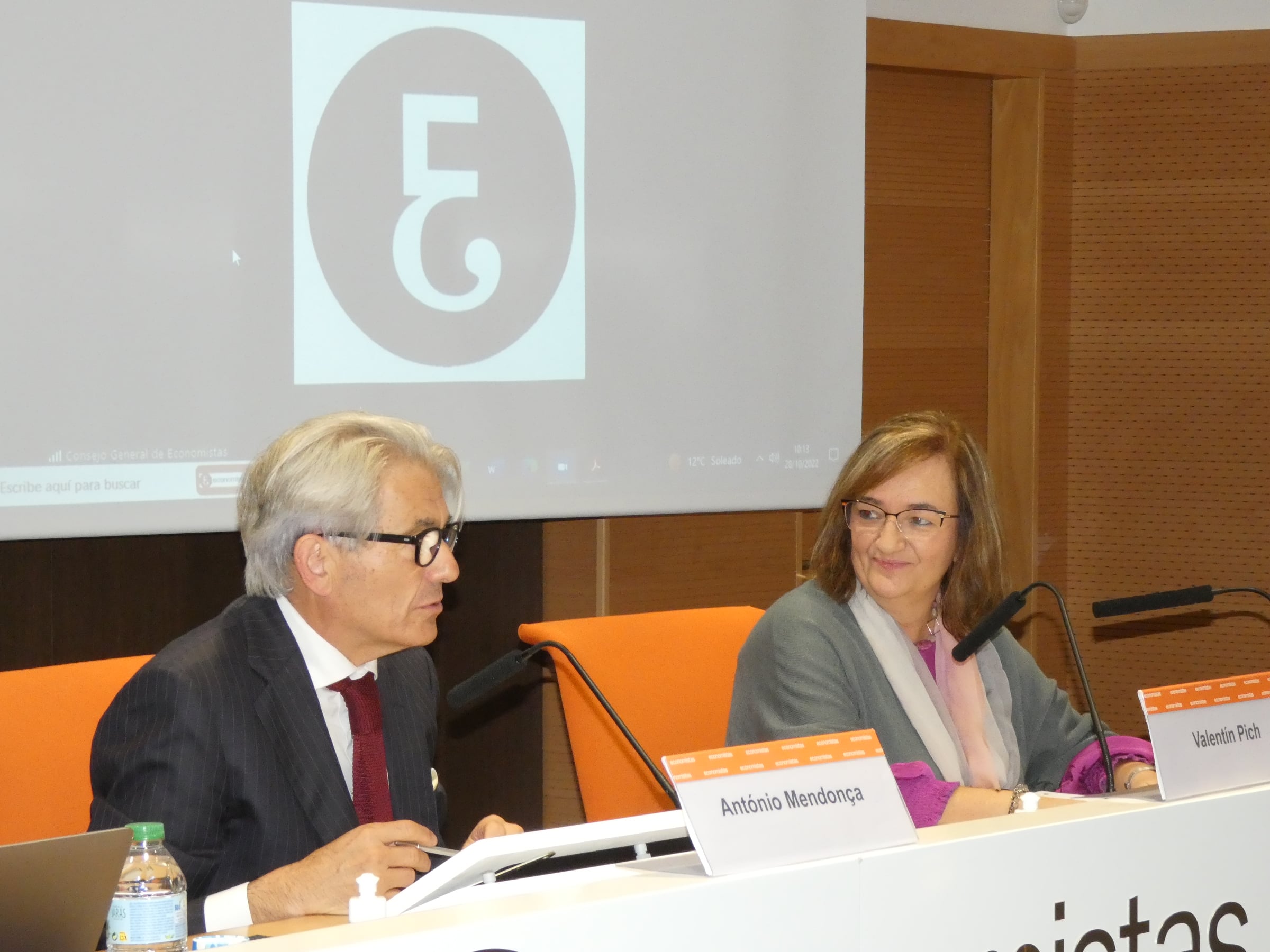
The President of the Independent Authority for Fiscal Responsibility (AIReF), Cristina Herrero, participated today, together with her Portuguese counterpart, Nazaré da Costa, in the 9th Iberian Seminar of Economists, organised by the Consejo General de Economistas of Spain and the Ordem dos Economistas of Portugal. Cristina Herrero highlighted the role that these institutions play, which is necessary for the analysis of public finances, for sustainability and for improving the quality of national budgetary processes as well as institutional and democratic quality.
In her view, the Independent Fiscal Institutions, which proliferated in Europe following the reform of the European fiscal framework triggered by the financial crisis of 2008, were needed beyond the framework that they were mandated to monitor. According to Cristina Herrero, the rules may be suspended or changed, and, in fact, will soon be modified, but an institution’s capacity for fiscal analysis and supervision cannot be improvised, which is why these institutions have permanent value.
In addition, they are necessary for improving the quality of national budgetary processes and their informative level. The structuring of fiscal policy in Spain is very complex and budget information is not always easily accessible and is often kept by the public authorities. The fact that there is an institution that has this level of information and can offer it to society as a whole on the basis of impartiality and objectivity is an important success in the creation of this type of institution.
They are also necessary for improving countries’ institutional and democratic quality. In fact, countries with higher quality fiscal frameworks have such institutions, such as the United States and the Netherlands. “It has been difficult to create this type of institution in European countries, but now they are here, the only thing left to do is to promote and defend them”, said Cristina Herrero.
In this regard, she stated that IFI leaders have a twofold responsibility, since they must be able to consolidate these institutions and ensure their durability. To this end, IFIs must be perceived as useful, be able to address challenges and changes and adapt to the new European and national fiscal framework, with a medium-term vision, more transparent instruments and objectives that can be subject to simpler and less arbitrary control and a strengthened role for IFIs.
Finally, Cristina Herrero reviewed the common features of this second generation of fiscal institutions created after the financial crisis of 2008, such as the Spanish and the Portuguese institutions.
The seminar was also attended by the President of the Consejo General de Economistas of Spain, Valentín Pich; the president of the Ordem dos Economistas of Portugal, Antònio Mendonça; the Managing Director of the Association of Electric Power Companies (AELEC), Paloma Sevilla; the consultant of the World Bank and former Secretary of State for Transport of Portugal, Carlos Correia da Fonseca; the former President of the Energy Services Regulatory Authority of Portugal, Vítor Santos; the Director of the Institute of Economic Studies and former Director of the National Institute of Industry, Gregorio Izquierdo, and the Director of International Relations of the Consejo General de Economistas, José María Casado.





